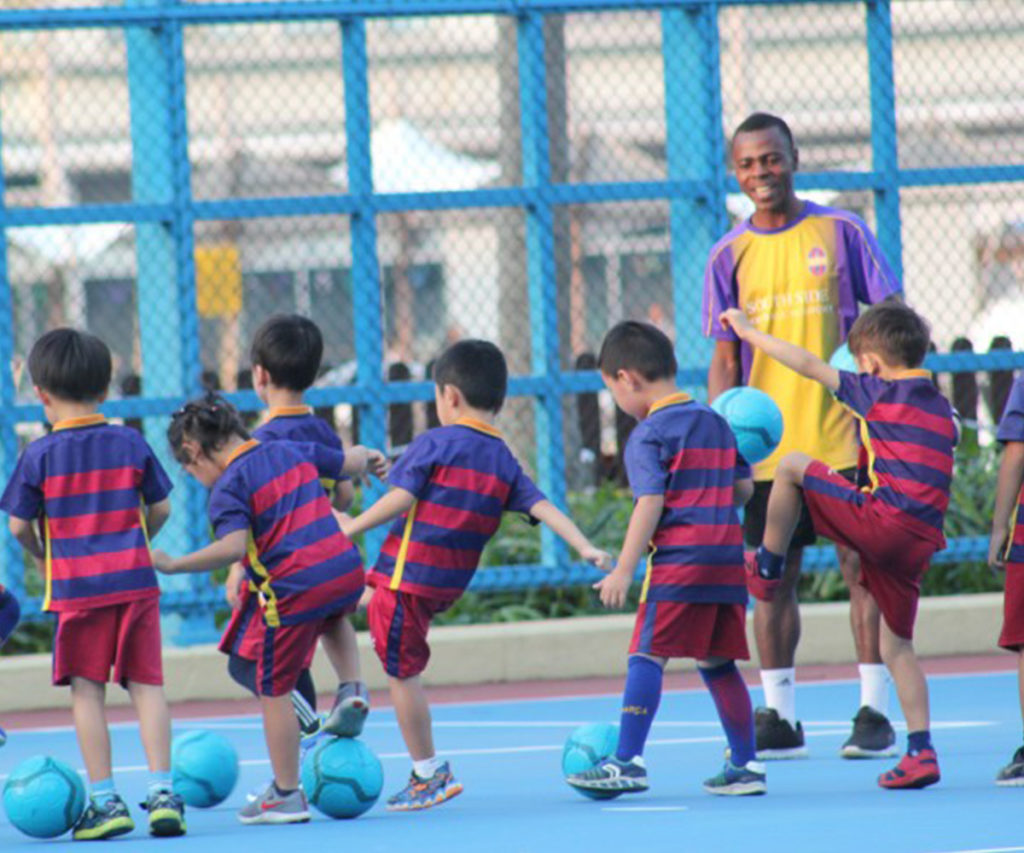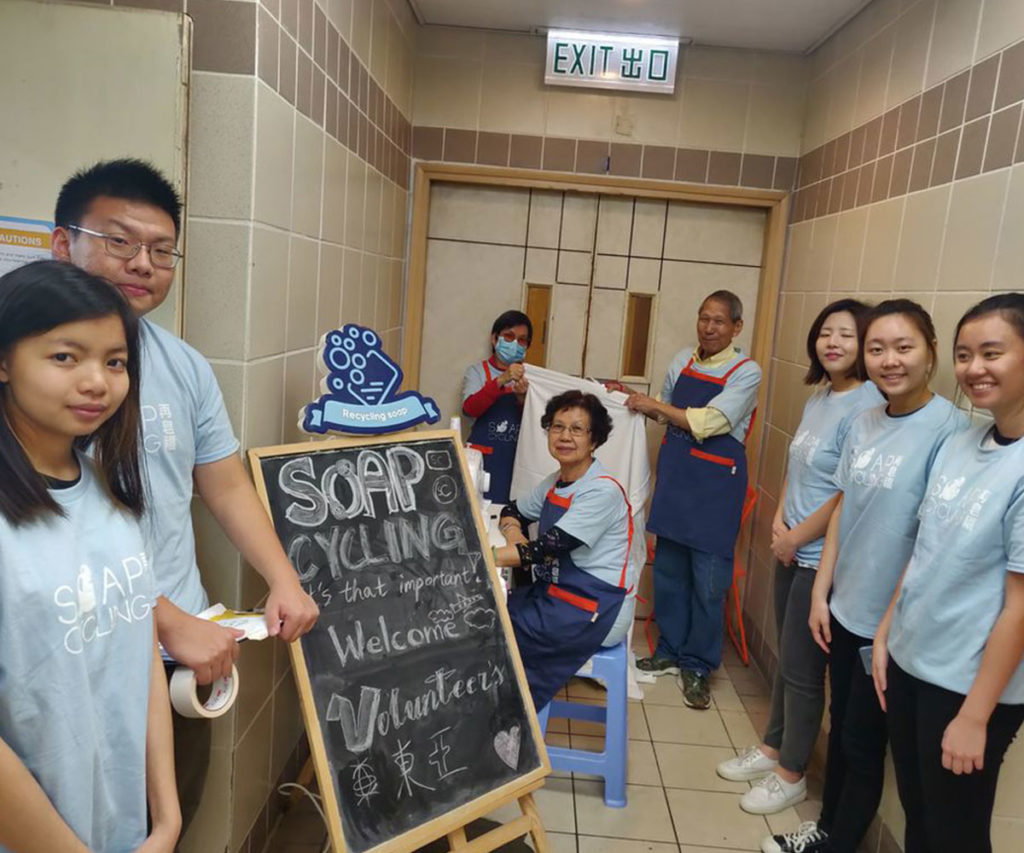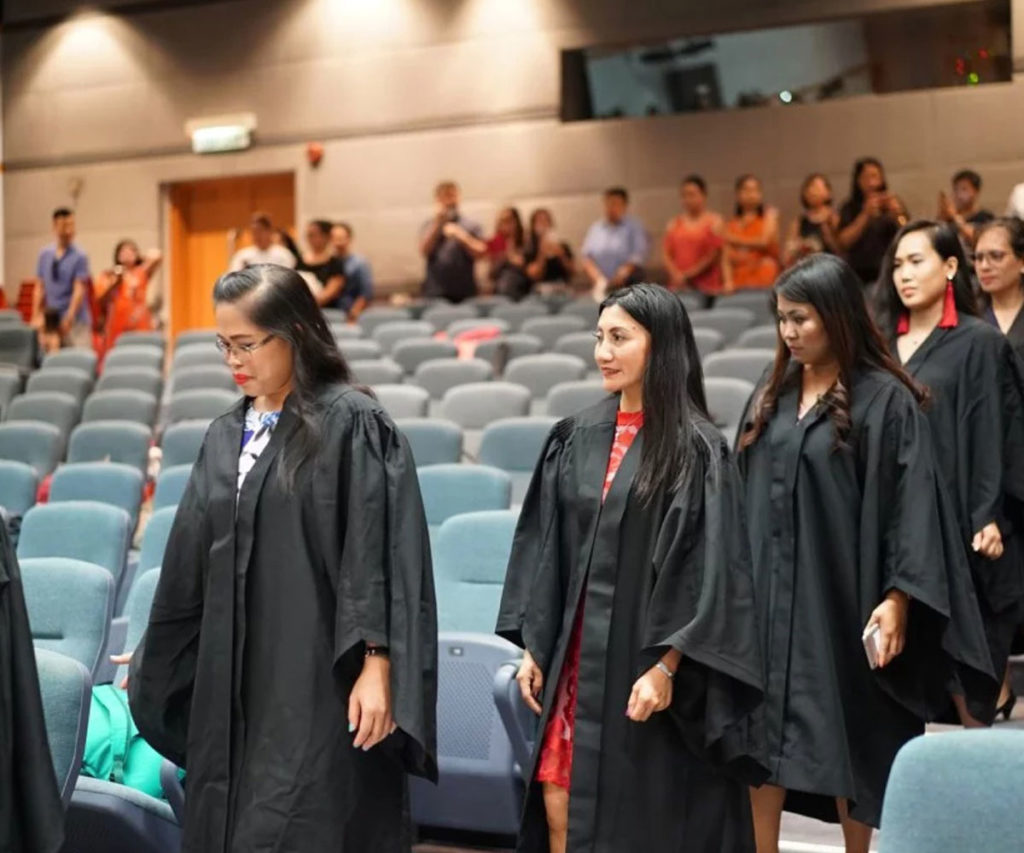At Foundation for Shared Impact (FSI), our work is guided by our shared impact philosophy. We promote broad collaboration, freely sharing knowledge and resources, the adoption of data-driven impact models, seeking systems change, and a culture of radical candour.
For about a decade, we have developed an impact-based learning curriculum and empowered over 1,000 students from all over the world through our Impact Lab Course. We have connected scores of social impact organizations with the private sector to facilitate skills and knowledge exchange to accelerate systems change through our Community Connections Program. Through our Community Business Support program, we have helped 40+ social businesses, including 13 portfolio startups, scale their impact by working directly with founders and team members on building their capacity and scope not just as businesses, but as community leaders.
One of such social businesses is EmpowerU, an empowerment and educational platform for migrant workers and ethnically diverse youth in Hong Kong. FSI has been working with EmpowerU since its inception, sharing our expertise, knowledge, and resources, and seeking solutions to overcome challenges together. Read our interview with Bradley Aaron, the Program Director at EmpowerU, where he tells us about the vision and mission of EmpowerU, his experience of working with FSI, and his advice for impact-driven youth.
Tell us about EmpowerU’s vision and mission?
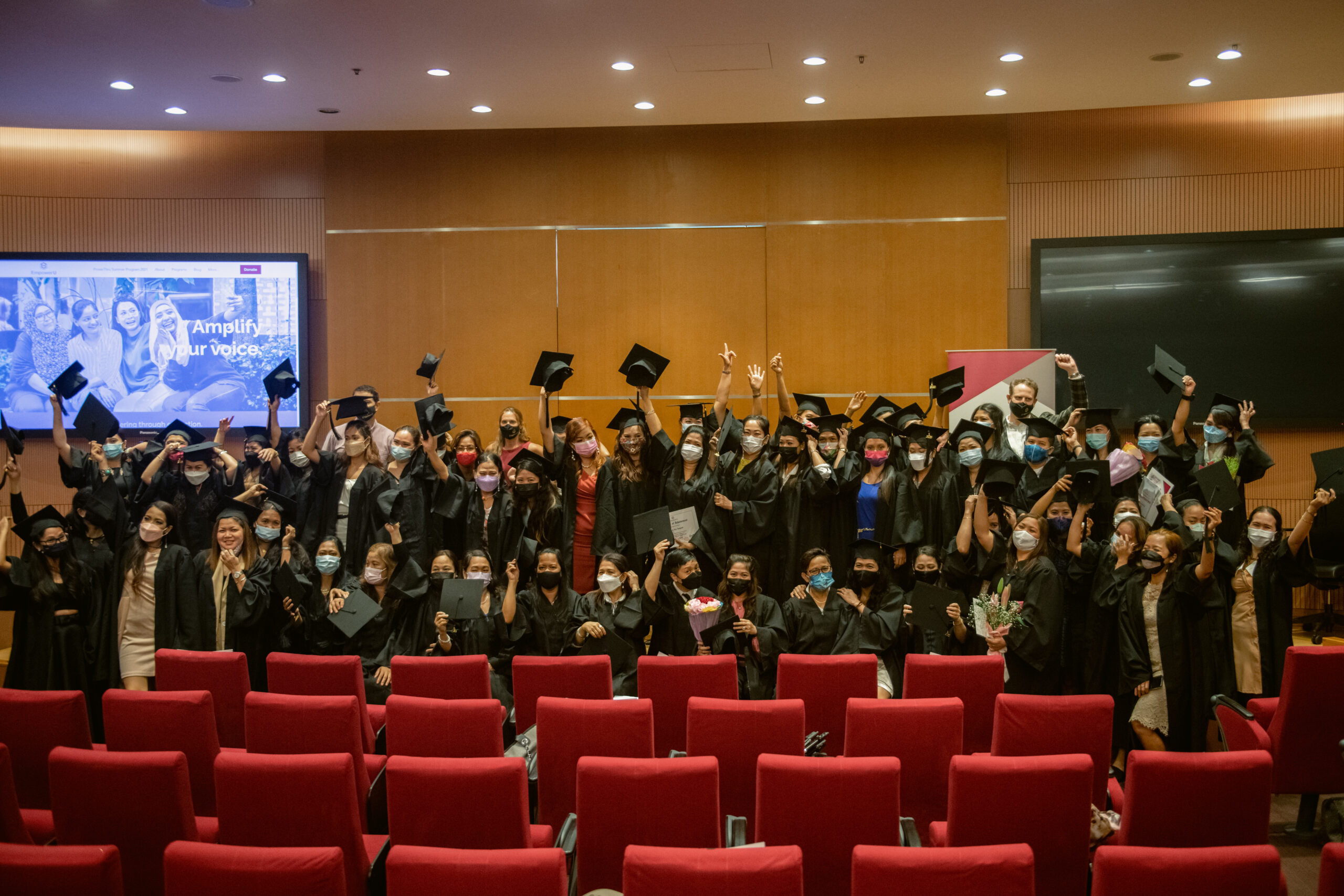
EmpowerU works in two main areas. The first one is providing educational opportunities for migrant domestic workers in Hong Kong. Our program for migrant domestic workers runs like a regular university: we have two terms in a year and a break between them. The students mostly study online, coming to the HKU campus a few times a month for in-person classes.
The other area is creating educational opportunities for local ethnically diverse Hongkongers. This summer, for example, we held our PowerThru Summer Program for ethnically diverse Hongkongers. The goal of the program was to create an educational space where students could come, be empowered, and explore their own interests in a way that they really can’t do anywhere else.
There are lots of education programs out there available to everybody in Hong Kong, but they aren’t available equally and on the same level for everybody. We are addressing some of those gaps in the educational provisions that exist in Hong Kong. These gaps exist not only for ethnically diverse communities, they exist across the world. But in minority communities, they’re especially obvious and problematic. There are questions of whether education really helps at building character, whether it does anything other than prepare students for higher education, which is often seen as the only goal. Ethnic minorities also face discrimination, and there’s a certain segregated nature of the schools, which means they start with a disadvantage.
Tell us more about the PowerThru Program – what does it teach, and how do you think it has impacted ethnically diverse youth in Hong Kong?
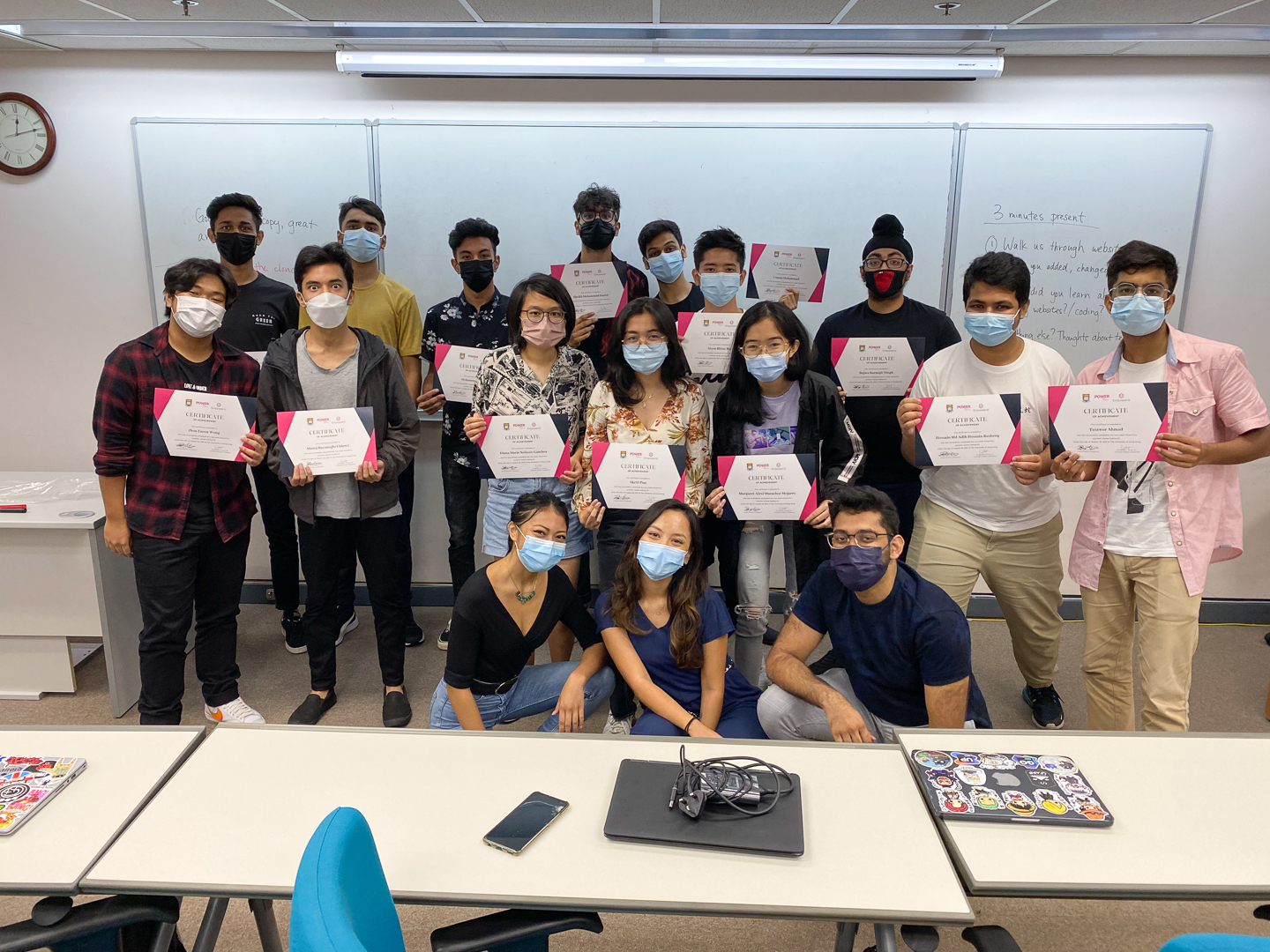
We developed the courses for PowerThru in conversation and in collaboration with the communities we serve and with all the instructors. Each instructor was passionate about a particular field or subject, and we wanted to give them the space to take that and run with it. We worked with them to make sure that the courses still fit within a pedagogical framework that was informed by our own expertise as educators.
One of EmpowerU’s core philosophies is that we don’t ask people to do what they don’t want to do, be it for the students or the instructors. Everything has to be a matter of personal choice. We incorporate elements of what is called “social-emotional learning” in every one of our classes. We are trying to fill a gap in the existing education system where, due to the constraints of the curriculum, there is no concerted teaching of resilience. We help to take up the slack and provide that for the schools.
Through our work, we are creating spaces for ethnic minority students to imagine different futures that they never saw available or open to them. In addition to this, we’re also creating concrete pathways to employment. Since we started the program, we’ve been approached by a number of different companies saying that they would love to have a more diverse workplace, so they would love to hire people that we could help to identify. Our students also have access to mentors from various ethnically diverse communities in Hong Kong.
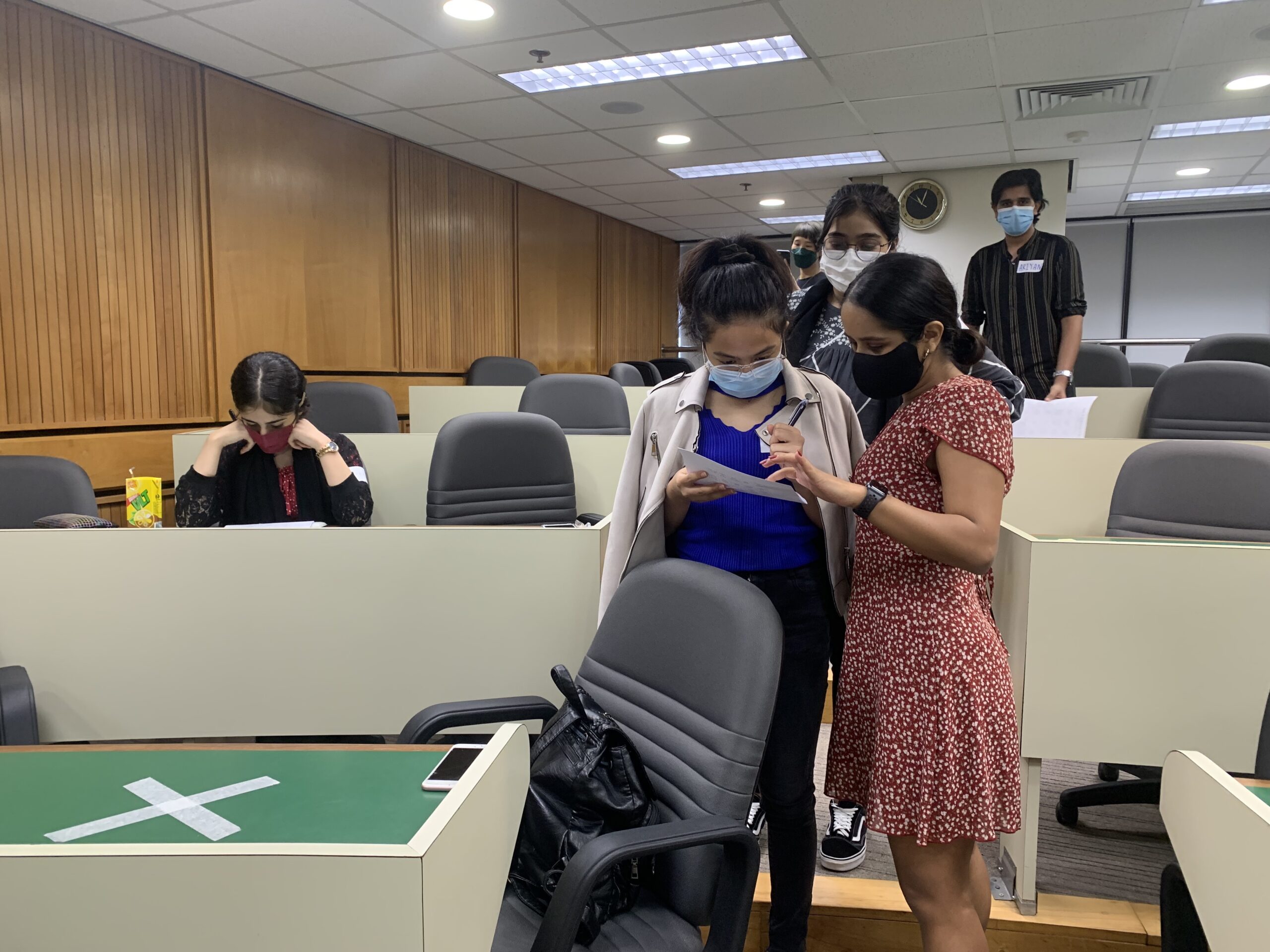
We want our students to see that if they study hard, things are going to happen for them in the future, or that if they have an interest, they can just go and pursue it. The mentorship helps them to feel confident to take that step. I think that in Hong Kong many students don’t feel confident to take risks. We create a safe space for the students to do that and to feel like their interests are valid. They can go through our programs and hopefully, that will help them achieve whatever goal that they have in life. We don’t have end results for our students, except for them to flourish.
How has FSI and the idea of shared impact benefitted EmpowerU?
I like the idea of shared resources. I think it’s great. It’s really important that organizations that don’t have large budgets, or large numbers of people, or a certain capacity for cooperation, are able to work together and share.
A good example [of shared impact] would be with the technology platforms. FSI can basically test and prototype something for somebody and get it working for them. That translates into a functioning final product for other people as well. And along the way, we don’t have to bear the cost of doing that ourselves. The technology side is a lot of work and it sucks up a lot of time. If somebody else is doing that, in this case, FSI, I don’t have to do it, which is great. If you don’t know how to create project management workflows, I don’t know how you would do it without being able to work with an organization that’s willing to share those resources like FSI.
Before I was here, EmpowerU had to figure out how to do everything in a way that would deliver the content for students who couldn’t meet in person because of the disruptions caused by first the protest, then COVID. FSI helped us research and find online content delivery platforms that would fit our case. They settled on one that’s called Thinkific. We’ve trialed it, and we were the first ones to develop any classes with that. Initially, FSI also helped us to pay for it too, which really helped to get things off the ground.
In the past, FSI also created for us a database that allows us to track enrollments in our classes. We can use that for both the ethnically diverse youth and for the migrant domestic workers. As we take payments from a variety of sources – through cash or various online payments – we need to have one centralized database that allows us to keep track of that and make sure that we are collecting tuition from our students in a timely manner. FSI has helped us to automate a large chunk of that process. Other schools that I know are still doing it manually.
FSI’s connection to The University of Hong Kong is also something that helps a lot. It gives us the space at HKU that otherwise, we wouldn’t be able to afford, which would mean that we probably wouldn’t be able to have the sort of educational programs we do.
EmpowerU is one of the partner companies of FSI’s Impact Lab Course. How is your experience with the student interns?
We’ve definitely had interns from Impact Lab that have stuck with us and even volunteered after the internship was over. There are skills and talents we’ve definitely used during the class. Afterward, some of them liked being part of the organization so much, they still kept coming back and volunteering. Or we find ways to get them paid gigs on the things that we’re doing. For example, we had one woman who is an Impact Lab student from last fall, who did a lot of graphic design for us. When we had some extra funding through the university, we were able to pay her as a contributor to design a final magazine that was created for one of our migrant domestic worker classes. There have been good results coming from Impact Lab.
What would be your advice for youth who want to contribute and promote the philosophy of shared impact, but probably don’t possess enough skills to become valuable employees?
I think that two things are really important: make sure you’re clear about the things that you like and the things that you want to do. That is something that carries you through most things in life but, especially, in an internship. Try to pick an internship that resonates with something that you already really care about and like. That’s going to get you through and make you want to keep coming back, rather than doing it just because of a grade.
The other thing is that everyone does have some sort of skill that they can apply to work. Try to figure out a way that you can share that with your organization. I would say for the students: tell the organization what you would like to do. My favorite student would be someone who takes things off my plate, and I can trust them to do that. Don’t be afraid to challenge yourself and do something you’re not used to. That sounds clichéd, but the internship really is a good opportunity to do that. If somebody shows up and wants to be challenged, and even if they’re not great but enthusiastic, that goes a long way. Don’t ever tell me, “I don’t have something to do, tell me what to do.” Say: “I don’t have something to do, but I was thinking about this, this, and this. I am also interested in these parts–do you have something there?” That’s the best approach.
Acknowledgment: This case study was conducted and written by Yana Khaladzinskaya, an Impact Lab intern of the FSI Communications and Marketing team.

